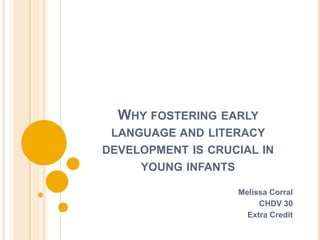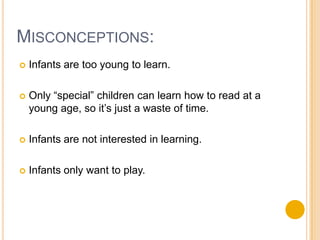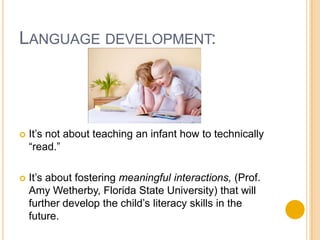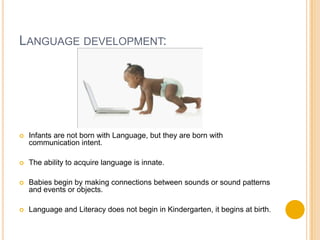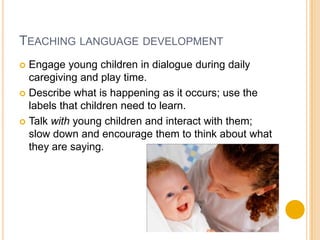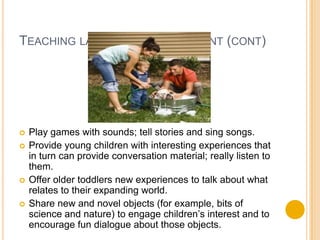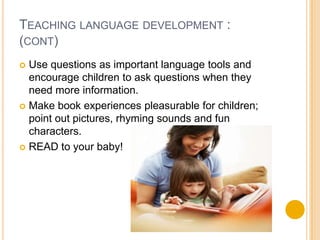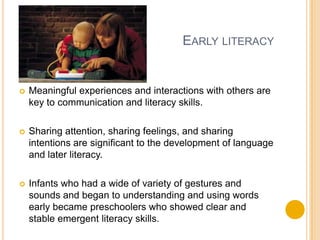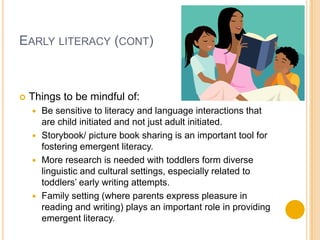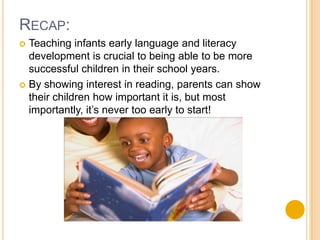Fostering early language and literacy development in infants is important for future learning. While infants are not born knowing language, they are born with the ability to communicate and acquire language through meaningful interactions with caregivers from birth. Describing daily activities, telling stories, singing songs, asking questions and sharing books can help infants develop important pre-reading skills and lay the foundation for literacy. Engaging infants in dialogue and providing new experiences supports language development and emergent literacy skills that benefit children as they grow.
